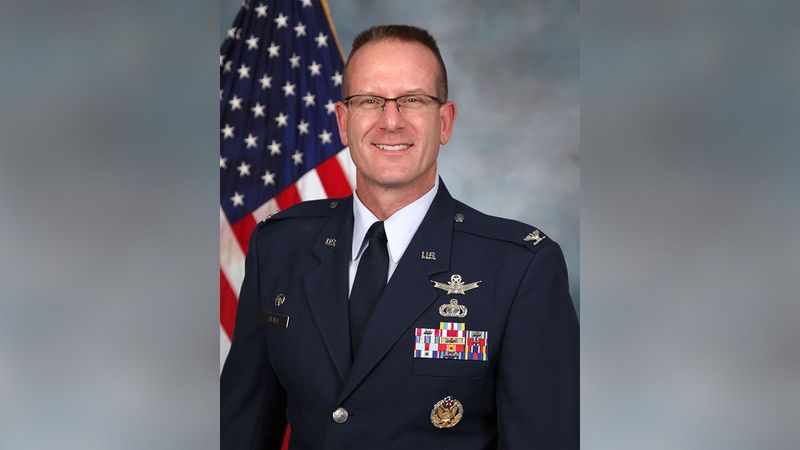
Colonel Timothy A. Sejba, Program Executive Officer for Space Development at the U.S. Space Force's Space and Missile Systems Center, will be keynote speaker at this year's virtual CALCON meeting. CALCON is hosted annually by the Space Dynamics Laboratory at USU.
The Space Dynamics Laboratory (SDL) at Utah State University announced today that U.S. Air Force Colonel (Col.) Timothy A. Sejba will be the keynote speaker at this year’s Characterization and Radiometric Calibration for Remote Sensing Annual Meeting, known as CALCON. This year’s CALCON will be held virtually 21-24 September 2020.
Each year, CALCON brings together the technical and user communities in a forum to discuss and learn how to achieve the best sensor data and results through satellite and sensor testing and validation. The meeting addresses all aspects of calibration—from looking widely across calibration purposes to the details of what data means and what techniques can achieve better data.
Col. Sejba was recently selected as the Program Executive Officer for Space Development at the U.S. Space Force’s (USSF) Space and Missile Systems Center (SMC), Los Angeles Air Force Base, El Segundo, CA. He is responsible for establishing and exploiting opportunities for continuous, iterative, and innovative capability improvements through rapid prototyping, experiments, demonstrations, and technology maturation for over 30 programs/projects valued in excess of $11 billion. He drives overarching and cross-cutting systems engineering approaches and leads acquisition strategy decisions to support warfighter operations.
Col. Sejba previously served as Director, Advanced Systems & Development Directorate and Commander, SMC Detachment 1, Kirtland Air Force Base, New Mexico. He was responsible for the directorate's mission to deliver responsive space capabilities to users across the National Security Space community and conduct developmental planning, science and technology, and pre-systems acquisition for the SMC. Sejba concurrently served as the Acting Director for the Space Rapid Capabilities Office. In this role, Sejba oversaw the development, demonstration, and fielding of space capabilities, focused on timely satisfaction of Joint Force Commanders’ needs.
“Col. Sejba is a national leader and recognized expert on affordable, resilient, and rapid solutions that fundamentally change the way space power is used across the Department of Defense,” said Paul Stewart, SDL’s director of technology and CALCON chairperson. “We are honored to have Col. Sejba deliver what promises to be an insightful and informative keynote address.”
All sensors, no matter their size, require testing to ensure that the measurements they collect will produce meaningful and realistic results. During testing, parameters are derived and potential performance is characterized to satisfy mission and science needs. Once a satellite reaches orbit and begins operation, validation of its performance is crucial to ensure that the results are accurate, reproducible, and complete. Calibration is the combination of testing and validation.
“Mission success is often not about more data, but about better data, which can only be achieved through proper calibration, ground truth testing, and the true characterization of a sensor in a realistic environment,” said Deron Scott, a calibration engineer at SDL and CALCON technical chairperson. “The space environment is harsh, and ensuring proper characterization of a sensor before launch into orbit is vital. Risks and costs associated with the development and launch of a spacecraft highlight the value of rigorous sensor calibration and characterization.”
For more information about CALCON or to register for the 2020 CALCON Technical Meeting, visit https://calcon.sdl.usu.edu/.
The SDL has been solving the technical challenges faced by the military, science community, and industry for six decades and supports NASA's vision to reveal the unknown for the benefit of humankind. As one of 14 University Affiliated Research Centers, SDL serves as a subject matter expert in its core research areas to the U.S. Government, ensuring that essential engineering and technology capabilities are maintained. SDL is a research laboratory headquartered in North Logan, UT, and has offices in Albuquerque, NM; Bedford, MA; Dayton, OH; Huntsville, AL; Houston, TX; Los Angeles, CA; Stafford, VA; and Washington, DC. For more information, visit www.spacedynamics.org.
Contact
- SDL Public Relations
- (435) 713-3054
- pr@sdl.usu.edu